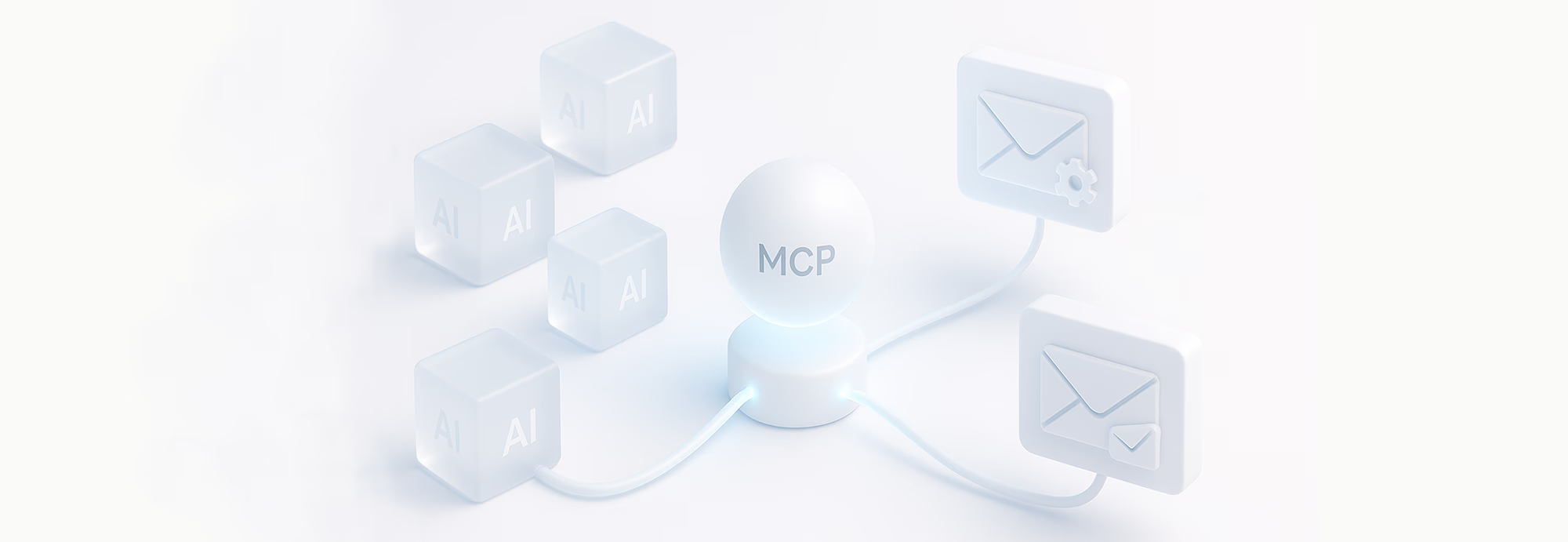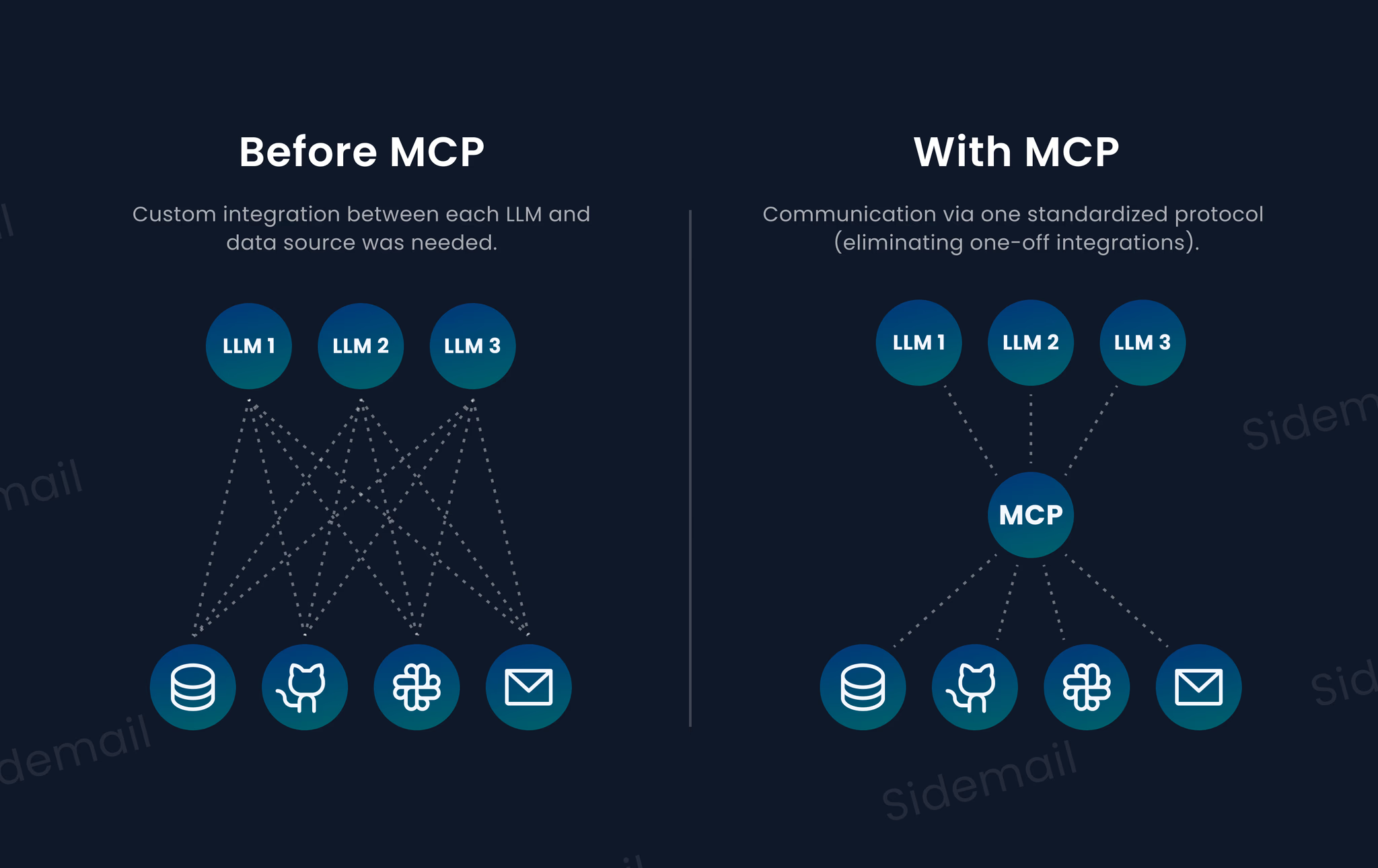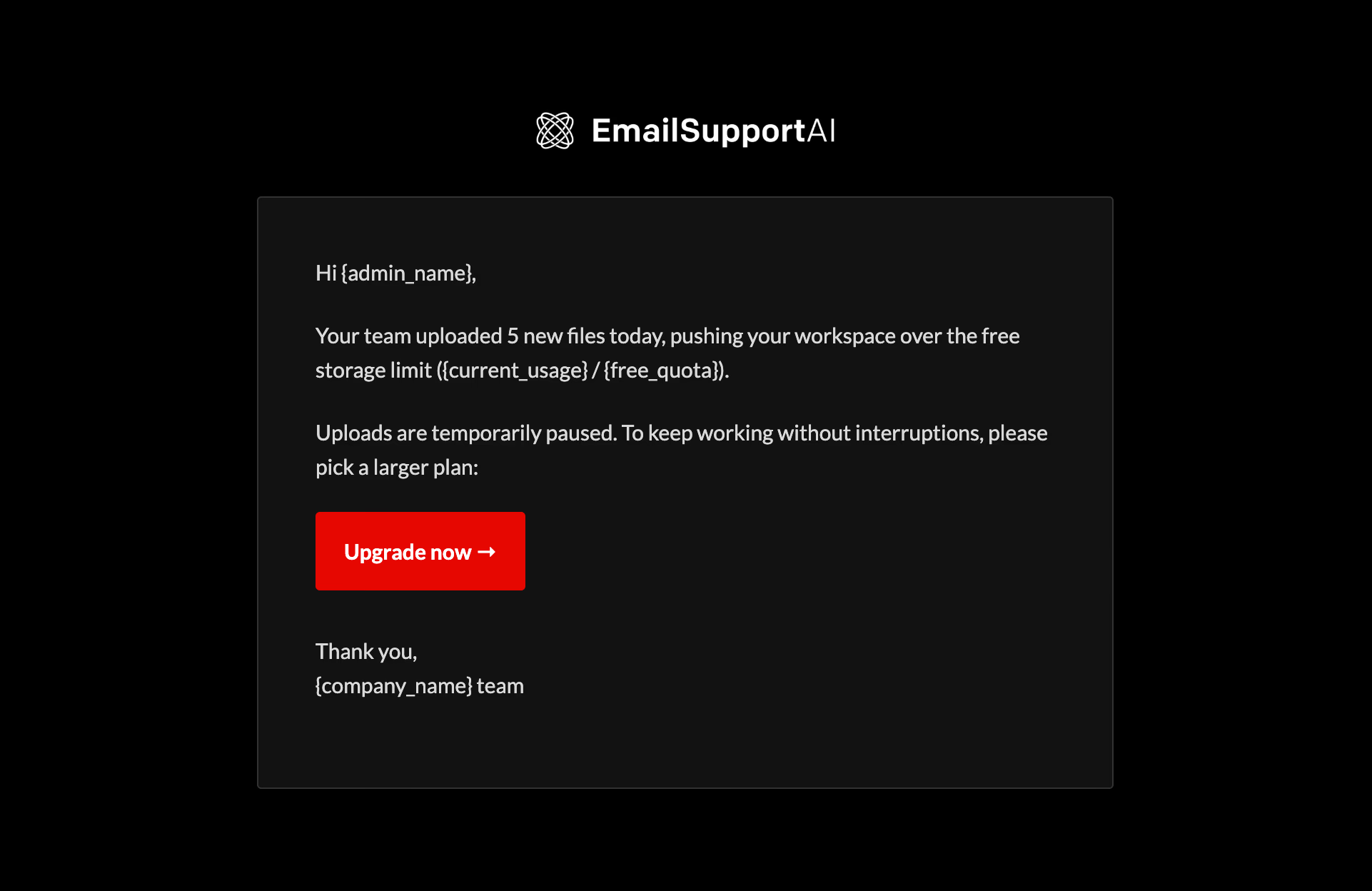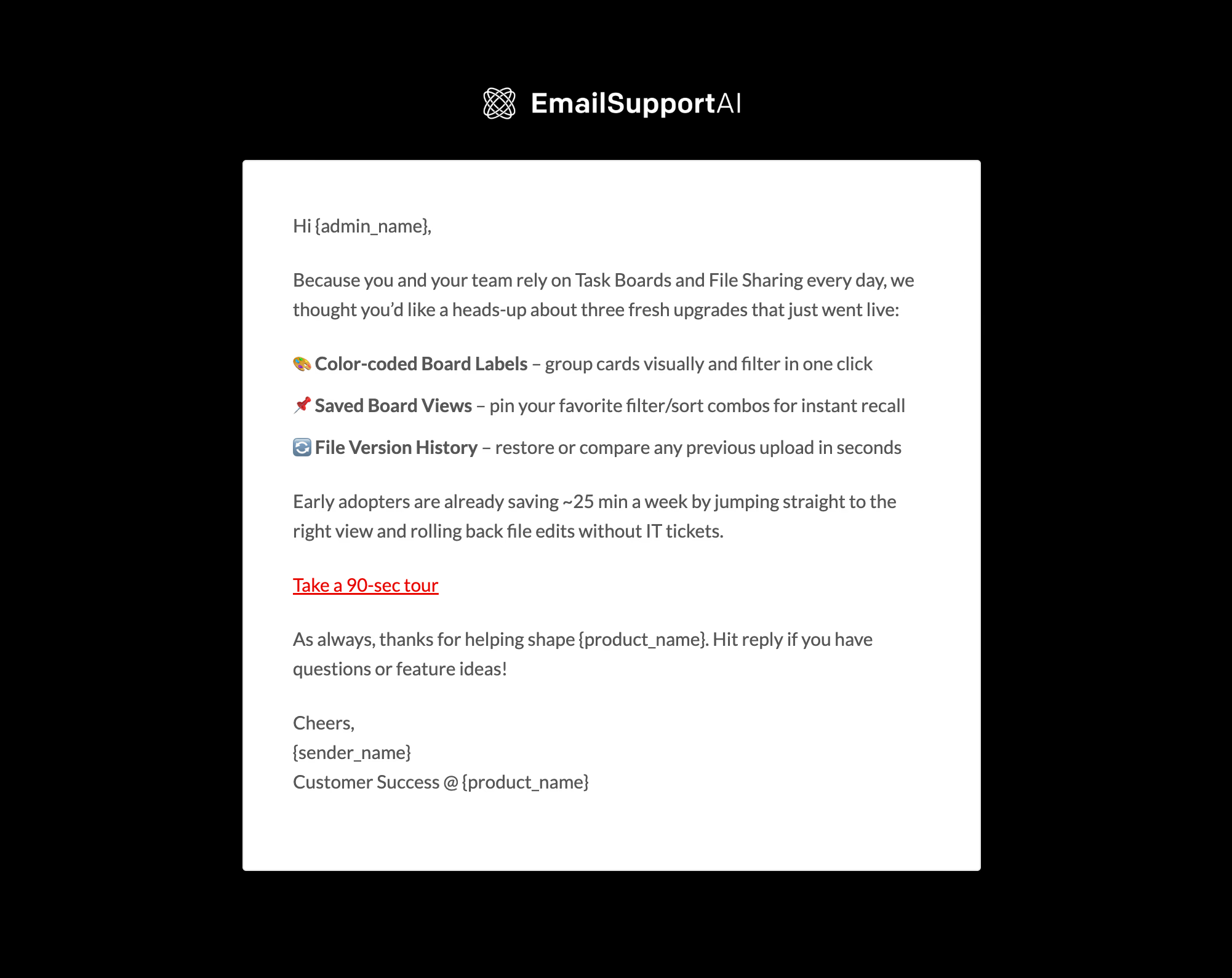MCP in email delivery: AI-generated transactional emails and newsletters
Published July 27, 2025 · Kristyna Vrbova

One area where MCP (Model Context Protocol) can shine is email delivery. SaaS products regularly send emails to their users – from transactional emails like password resets and notifications, to marketing emails like product updates and newsletters. MCP can enhance and automate these processes by letting AI models directly interface with email services in a controlled way.

AI-powered transactional emails (password resets & notifications)
Transactional emails (e.g. a password reset link, account activation, order confirmation, or system alert) are typically triggered by user actions or application events. Using MCP, an AI agent can handle these email workflows more intelligently. For example, if a user in a chat says, “I forgot my password,” an AI assistant could invoke an MCP server connected to the company’s email service or identity provider to send out a secure password reset email instantly. The AI doesn’t need special hard-coded privileges – it simply calls a standardized “sendPasswordReset” tool via MCP, and the server does the rest (generating the reset link and emailing it to the user).
What’s the advantage here?
Firstly, it simplifies the backend logic – instead of your app calling the email API and constructing the message, the AI agent (guided by user request or an event) can trigger it via MCP as part of its natural workflow.
Secondly, it opens the door for dynamic content. The AI could tailor the notification message based on context. For instance, a usage alert email could include a brief AI-generated summary of what triggered the alert (“Your team uploaded 5 new files today, pushing you over the free storage limit”). The AI could fetch that data via another MCP server (e.g., a database connector) and include it in the email before sending – something very hard to do with a static template system.

Personalized product updates & newsletters with AI
Beyond one-off transactional emails, MCP can boost marketing emails and newsletters, by connecting AI into the campaign workflow. Traditionally, product update emails or newsletters are created by marketers using static templates and segment lists. With MCP and AI, these communications can become more dynamic and personalized than ever.
Using MCP, an AI model could be connected to multiple data sources – for example, your product’s release notes database, the user’s usage history, and an email platform. This allows the AI to generate a custom newsletter for each user or segment on the fly.
Imagine an AI that pulls the list of new features from your wiki (via an MCP documentation server), then checks which features the particular user has used or might benefit from (via an MCP query to your analytics DB), and then writes a tailored product update email highlighting the most relevant new features for that user.
It could even vary the tone or depth of content based on the user’s profile (e.g. technical details for a developer, high-level summary for a manager).
Finally, it can send the emails out through an MCP connector to your email service (like Sidemail, SendGrid, etc.). All of this could happen automatically or with one command from a product marketer to the AI system.

Where email stands with MCP now
This isn’t science fiction – it’s an emerging reality. Major email platforms are starting to integrate AI-driven protocols like MCP into their systems.
The goal is to allow AI to drive personalization and automation within familiar tools. MCP essentially lets the AI do the heavy lifting: real-time data fetching, content generation, and triggering sends, all within the guardrails you set. The benefit to SaaS product owners and marketers is huge: far more engaging emails, and less manual work crafting variants for each audience.
Studies and early adopters are already reporting dramatic improvements in email engagement when using AI with live context.
Why? Because the content is hyper-relevant to each reader. MCP-powered email campaigns aren’t just inserting a first name greeting; they can tailor the entire message to what the AI knows about the recipient’s needs and behaviors. For example, MCP enables “adaptive learning” – the AI can learn from each email interaction (opens, clicks) and adjust subsequent emails for that user, all within the campaign cycle. If a user ignores a certain type of content, the AI can swap it out next time with something more engaging for them, or change the send time, etc., thanks to the continuous feedback loop.
Summary
MCP opens up new possibilities for email delivery in SaaS contexts. For transactional emails, it means smarter, on-demand messaging triggered by AI understanding. For newsletters and updates, it means truly responsive campaigns that adapt to each user. Product managers and developers can leverage MCP to integrate AI into their email pipelines in a controlled way, achieving the holy grail of “one-to-one” personalization at scale.
Sidemail is among the first email services to add official MCP support for sending and managing emails, contacts, and sending domains – you can read more about Sidemail MCP server in the docs.
👉 Try Sidemail today
Dealing with emails and choosing the right email service is not easy. We will help you to simplify it. Create your account now and start sending your emails in under 30 minutes.